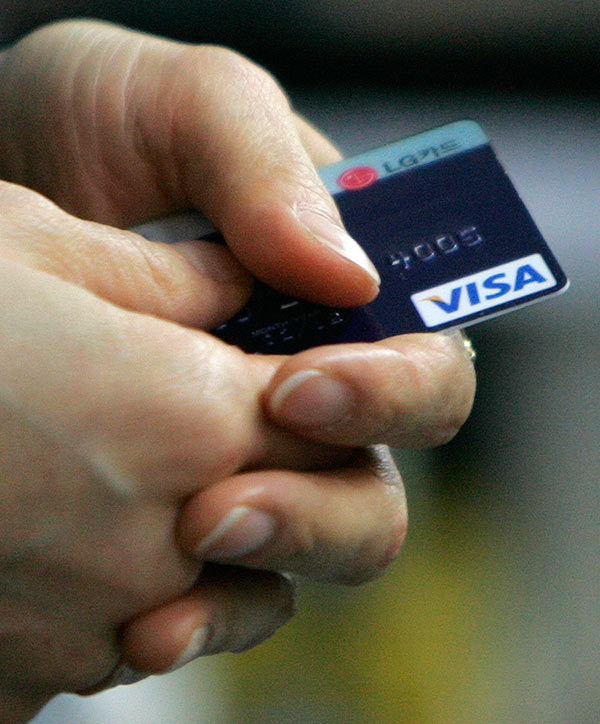Here's how to get out of this situation without hurting your CIBIL score.

Photograph: Jo Yong hak / Reuters
Today, access to credit is easy if you have the repaying capacity and conform to the required eligibility criteria. With this, the possibility of an individual having more than one credit card is also high. But a lot many take it loosely when it comes to paying their credit card bills on time. This can amount to inviting unforeseen hassles. Here is how you can deal with a situation in which you have missed out on a payment on your credit card bill:
You face two situations when you miss out on a payment on your credit card bill.
First you attract a lumpsum fee due to failure to pay even minimum payment which is due. Each bank will have its own rules that govern your credit card account. Some banks allow you to keep using your credit card till you hit your credit limit, while some do not allow transactions beyond a point.
It is the latter that can be worrisome one.
A critical factor here is the impact it can have on your credit score, also known as CIBIL score. No wonder informed credit card holders dread the fact of missing a bill payment.
There are two chief reasons why one does not pay credit card bill on time. First, you might not have enough funds. Second, you may have simply forgotten due to some personal or technical reasons.
Whatever be the case, you need to call up your bank and check the status of your credit card account. Ask the bank if it allows you to use the credit card further?
If it does not, then you should be prepared for making future payments in cash or to use some other credit or debit card. If paucity of funds is a reason behind not paying on time, tell this upfront to your bank. Banks in such circumstances may come forth with a personal loan or a repayment mechanism, wherein you repay through equated monthly instalments.
This ensures that the interest burden on your shoulder goes down dramatically. If the credit card outstanding attracts interest at 36 per cent to 42 per cent per year, the personal loan arrangement brings down the interest charge at 18 per cent to 20 per cent per year. This works best when one has gone overboard shopping in a particular month, or has incurred sudden expenditures.
If you have been a disciplined user of your credit card and you have forgotten to pay on time, then you may request your bank to reverse the lumpsum fee that is being charged to you for failing to pay minimum amount due. There are many instances when banks do reverse these charges for such one-off slippage by their timely payers. Pay off the credit card bill using net banking immediately, and remove the overdue tag on your credit card quickly.
One failure to pay your loan or credit card outstanding does not drastically pull down your credit score. But repeated instances of failure to pay on time may cause your credit score get into a free fall. Poor CIBIL credit score, anything below 700 out of 900, means you are denied credit by large banks. This may go against you when you are planning to go for a home loan or a business loan.
To avoid repeated failures to pay on time, just because you tend to forget the due dates, opt for standing instructions. Instruct your bank to pay off the credit card outstanding on the due date, by debiting your bank account, which has sufficient balance. This arrangement ensures that even if you forget to repay your credit card bill, your bank ensures payment on due date.
The author is a credit expert with 10 years of experience in personal finance and consumer banking industry and another 7 years in credit bureau sector. Rajiv was instrumental in setting up India's first credit bureau, Credit Information Bureau (India) Limited (CIBIL). He has also worked with Citibank, Canara Bank, HDFC Bank, IDBI Bank and Experian in various capacities.












 © 2025
© 2025